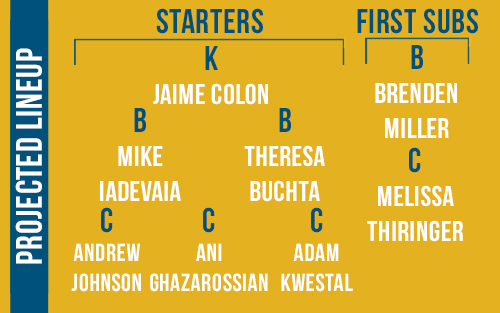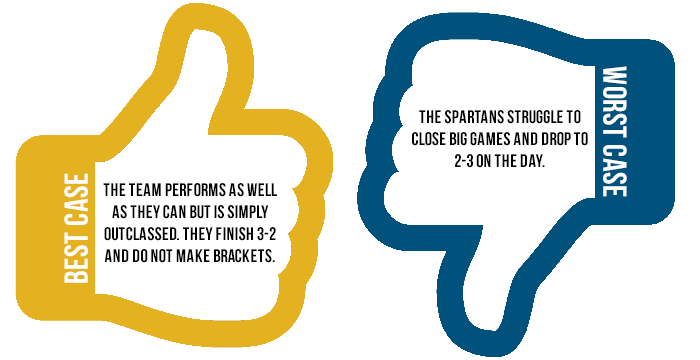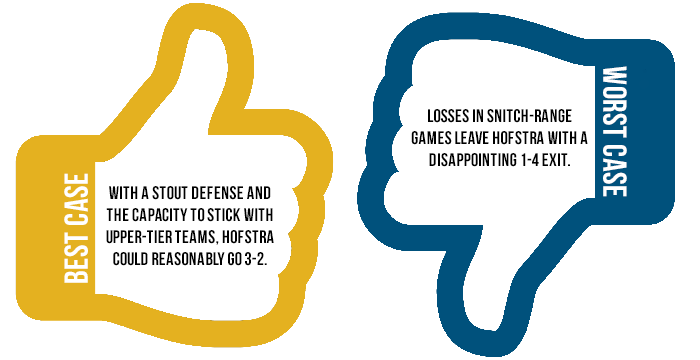Antwerp QC, Much of Belgian Core, Leaves Competitive Quidditch
Rock Hill Roll Call is your in-depth guide to the 80 teams that will compete for the title of World Cup 8 Champion. We’ve reached out to writers and analysts all over the country to bring you the lineups, strategies, focal points and aspirations of each and every attending team. Whether you are looking for a leg up on the competition or just want a detailed preview of the sport’s main event, this is the place for you.
 By Eric Wasser
By Eric Wasser
Michigan State University is not a team known for their offensive organization and formations. Instead, they play a fast-paced game that relies on the expectation that the opposing defense will be on their heels and unable to adequately handle one-on-one driving situations that are often followed by quick dish to the other side of the hoops. That is not to say that there is not a method to Michigan State’s style. The squad is heavily reliant on off-ball chasers to not only keep up with the pace of ball carriers like Jacob Heppe, but to also be moving into position for an open catch and release on the far hoop.
 Additionally, the Spartans are extremely dependent on the removal of opposing beaters to create a driving lane and have a tendency to suffer when the other team maintains a conservative beater by the hoops. However, the easiest way to deal with Michigan State’s strategy is to win convincingly on offensive possessions. A strong shot from the front side of the hoops or an emphatic dunk buys a team enough time to retreat and re-establish their defensive footing before the Spartans can charge up the field.
Additionally, the Spartans are extremely dependent on the removal of opposing beaters to create a driving lane and have a tendency to suffer when the other team maintains a conservative beater by the hoops. However, the easiest way to deal with Michigan State’s strategy is to win convincingly on offensive possessions. A strong shot from the front side of the hoops or an emphatic dunk buys a team enough time to retreat and re-establish their defensive footing before the Spartans can charge up the field.
 By Eric Wasser
By Eric Wasser
Nic Dziadosz has been the backbone of Michigan State’s quaffle game for years. Much deserved praise goes to Heppe for his athleticism, but when he is off pitch either to rest or seek (as the team needs of him much more this year due to the departure of Jack Norgren), it is easy for the Spartans to falter. However, Dziadosz’s size and speed help the team transition easily between primary ball carriers. Recently, he suffered a broken collarbone in practice and has been sidelined since the incident. Sizable, physical and smart, Kevin Fennell could serve as this replacement. However, he would have to spend the next two months building up his endurance and increasing his speed. If the team is unable to find a strong replacement for Dziadosz, they will suffer anytime Heppe cannot be in, predominantly when the snitch is on pitch.
 By Devin Sandon
By Devin Sandon
In order to do well at World Cup 8, Hofstra University will need to spread the weight of the offense effectively. This season, Hofstra has shown glimpses of a very strong passing game with good contributions coming from every player on the field. However, the squad has more frequently shown—particularly when the pressure is on—its offense is a one-man show that begins and ends with keeper Jaime Colon.
A former football player with a low center of gravity, surprising agility and a penchant for blocking bludgers, Colon can drive through many defenses to score. However, in the same way that the Seattle Seahawks needed to have a passing game to supplement their run, Hofstra needs to become more comfortable with utilizing the two-pass offense they have previously shown. They need to develop a less-predictable offense, one which is less reliant on a single player who could suffer an injury or be worn down by a series of competitive games in the swiss bracket.
Hofstra has shown that they can put together a strong passing offense, they now need to prove themselves able to commit to it better under pressure. As hard as it may be, Jaime needs to trust his teammates—such as Ani Ghazarossian and Andrew Johnson—more and try to put the team on his back less.
By Anonymous
Of the Northeast teams that regularly trot out a two-male beater set, Hofstra is by far the most flexible, largely due to the presence of Theresa Buchta. While she struggled at the Northeast Regional Championship, she’s still a strong presence that allows the team to switch out of its two-male set without fearing much of a drop off in performance. Because of this, you have to be ready for a variety of looks from the Dutchmen.
 Offensively, Hofstra is looking almost exclusively to find a driving route from the top of the zone, and they’ll do just about anything they need to to achieve it. With bludger control, they will still bring a beater up to take away point defenders and create a no-bludger situation. If they can’t create a lane for Colon purely with bludgers, he’ll often look for a field-shifting pass to a chaser, most often Johnson. Johnson will often look to swing it back to an open Colon, so that option needs to be cut off by the point defender. Otherwise, Colon will try to drive himself or look for a tertiary option, a point at which the Dutchmen’s offense often breaks down.
Offensively, Hofstra is looking almost exclusively to find a driving route from the top of the zone, and they’ll do just about anything they need to to achieve it. With bludger control, they will still bring a beater up to take away point defenders and create a no-bludger situation. If they can’t create a lane for Colon purely with bludgers, he’ll often look for a field-shifting pass to a chaser, most often Johnson. Johnson will often look to swing it back to an open Colon, so that option needs to be cut off by the point defender. Otherwise, Colon will try to drive himself or look for a tertiary option, a point at which the Dutchmen’s offense often breaks down.
Defensively, Hofstra is going to be extremely conservative with their bludgers, often playing them horizontally close to the hoops when they have control, knowing how vital it is to their offense. Be patient, eliminate the point defender and the mid-range shots or close-to-hoops passes should be open. Hit a few in a row, and you can stretch out the defense, leaving them more susceptible to giving away control.
If you are in a snitch range game with the Dutchmen, it’s important to know your snitch. Rob Walsh may be unassuming, but he is deadly when sneaking around an opposing seeker engaged with the snitch. That being said, he struggles one-on-one. So if your seeker is careful, the rest of your team can focus on running up the score while Walsh struggles.
Archives by Month:
- April 2025
- May 2023
- April 2023
- April 2022
- January 2021
- October 2020
- September 2020
- July 2020
- May 2020
- April 2020
- March 2020
- February 2020
- January 2020
- December 2019
- November 2019
- October 2019
- August 2019
- April 2019
- March 2019
- February 2019
- January 2019
- November 2018
- October 2018
- September 2018
- August 2018
- July 2018
- June 2018
- April 2018
- March 2018
- February 2018
- January 2018
- November 2017
- October 2017
- July 2017
- June 2017
- May 2017
- April 2017
- March 2017
- February 2017
- January 2017
- December 2016
- November 2016
- October 2016
- September 2016
- August 2016
- July 2016
- June 2016
- May 2016
- April 2016
- March 2016
- February 2016
- January 2016
- December 2015
- November 2015
- October 2015
- September 2015
- August 2015
- July 2015
- June 2015
- May 2015
- April 2015
- March 2015
- February 2015
- January 2015
- December 2014
- November 2014
- October 2014
- September 2014
- August 2014
- July 2014
- May 2014
- April 2014
- March 2014
- February 2014
- January 2014
- November 2013
- October 2013
- September 2013
- August 2013
- July 2013
- June 2013
- May 2013
- April 2013
- March 2013
- February 2013
- January 2013
- December 2012
- November 2012
- October 2012
Archives by Subject:
- Categories
- Awards
- College/Community Split
- Column
- Community Teams
- Countdown to Columbia
- DIY
- Drills
- Elo Rankings
- Fantasy Fantasy Tournaments
- Game & Tournament Reports
- General
- History Of
- International
- IQA World Cup
- Major League Quidditch
- March Madness
- Matches of the Decade
- Monday Water Cooler
- News
- Positional Strategy
- Press Release
- Profiles
- Quidditch Australia
- Rankings Wrap-Up
- Referees
- Rock Hill Roll Call
- Rules and Policy
- Statistic
- Strategy
- Team Management
- Team USA
- The Pitch
- The Quidditch Lens
- Top 10 College
- Top 10 Community
- Top 20
- Uncategorized
- US Quarantine Cup
- US Quidditch Cup






